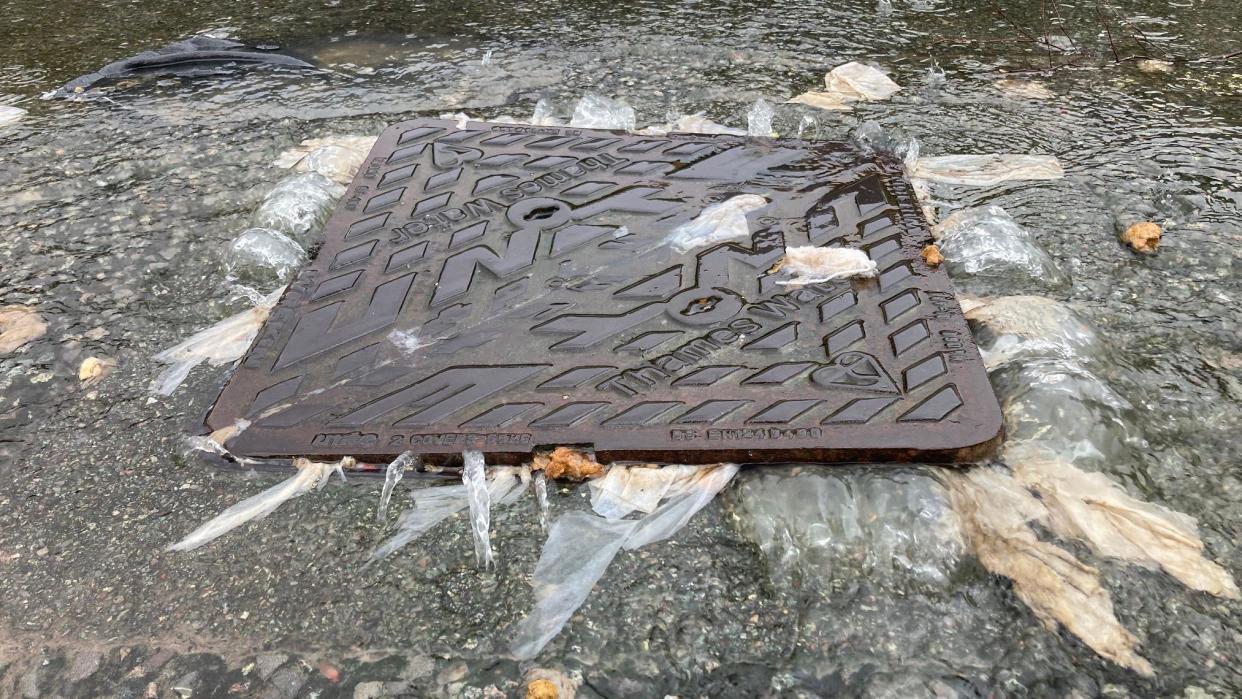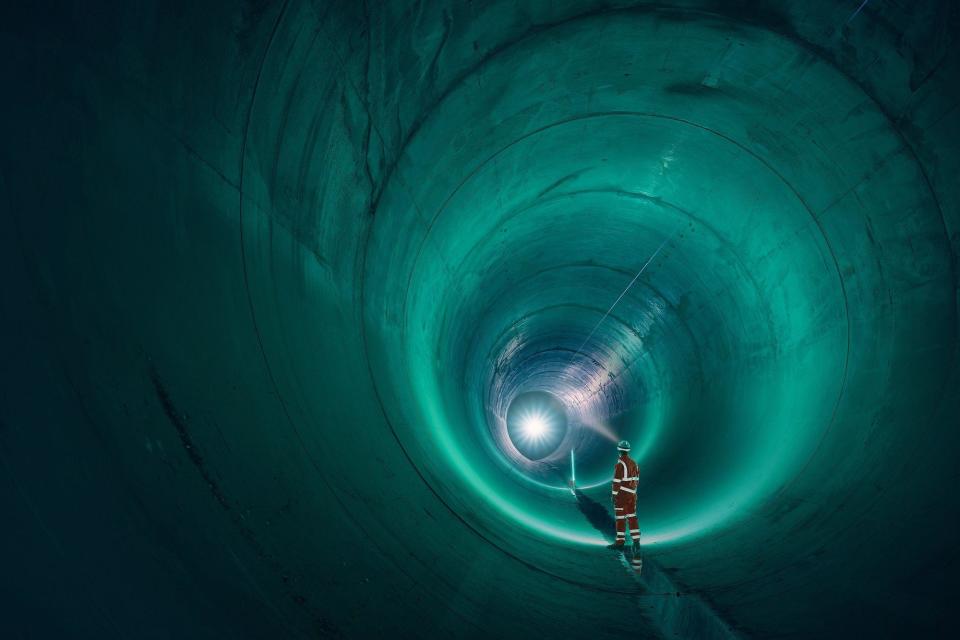Top scientists urge action against faeces in rivers

Human faeces in our rivers is putting the public in danger and the risk will increase without action, the UK's top engineers and scientists have warned in a report.
The report led by the Royal Academy of Engineering called for an upgrade of the UK's sewage system and more widespread testing of the country's waterways.
Prof Chris Whitty - England's chief medical officer - said it was a "public health priority as well as an environmental one".
The government said the largest infrastructure programme in water company history was currently taking place.
Despite improvements in the UK's water quality over the last thirty years, raw sewage overflowing into rivers and seas remains a persistent problem. Last year on average there were 1,271 spills a day in England - a doubling on the previous year.
Less than a week ago, thousands of residents in Devon had to resort to drinking bottled water after their supply was polluted with the parasite Cryptosporidium apparently because of a faulty valve in Southwest Water's network.
Prof Barbara Evans, chair of public health engineering at the University of Leeds and one of the study's co-authors, told the BBC: "One of the most dangerous things in our lives is human faecal waste."
She said: "We now know that more of [this waste] is going back into the environment. And we know that more people want to use bathing waters.
"So we have to say that there's an increased risk of an outbreak of infectious faecal oral disease."
Consumption of water contaminated with human faeces exposes people to bacteria such as salmonella and E.coli which cause diarrhoea and vomiting or viruses like hepatitis A which can lead to liver infection.
Melissa Compton, 44, a nurse from Shrewsbury, regularly swims in the sea near her home in Anglesey and in the River Severn.
She told the BBC it was really important for the public to be able to swim and enjoy the UK's rivers.
"I love it - it's a freedom that I get. Kids play in the river, people fish, and the wildlife really depends on it. It's part of life."
But she knows the risks of contact with sewage pollution after being brought to hospital whilst taking part in a 220-mile charity swim in the River Severn.
"What I was swimming through was just awful, sickly, slightly grey in colour and it just stank."
She now uses the Surfers against Sewage maps to know when sewage has been released.

The report recommends that any data from more regular testing of the rivers should be made available to the public so they can keep themselves safe. Currently this is only undertaken regularly by the Environment Agency at designated bathing water sites.
The government announced last week that England will get 12 more official bathing sites along rivers taking the total to 15.
And a spokesperson for the water company trade association Water UK said: "Water companies have a plan with proposals to double the current level of spending between now and 2030 "with bathing areas heavily prioritised for investment".
The report puts forward 15 recommendations including to:
Improve maintenance of the existing sewage network
Return to collecting widespread data on faecal bacteria
Review the current regulations on bathing water
Develop a long-term strategy for better designing cities to reduce flooding
It also calls for the introduction of novel technologies to disinfect already treated sewage, such as UV radiation, to help further reduce the presence of faecal matter.
Charles Watson, chair of River Action UK, said it was a "brilliant piece of work, produced by some of the most authoritative people in the medical and engineering professions".
He particularly welcomed their call to expand testing for bacteria and viruses from faeces.
When asked what could be the impact of not implementing these recommendations he said: "someone will die."

The authors were keen to stress that the government should not just focus on improving infrastructure - which would reduce the short-term health risk - but a longer-term vision for how the UK's cities are designed.
Since 1950 the UK's population has grown by a third and cities and towns have continued to expand, paving over natural landscapes. This has increased the volume of water running off into the sewage system - increasing the pressure on the old infrastructure.
Prof David Butler, chair of the National Engineering Policy Centre working group on wastewater, explained that the system would become only more strained.
"Growing urbanisation and forecasts for more frequent and intense rainfall events due to climate change will mean increasing pressure is put on our ageing wastewater system," he said.
The experts recommended increasing rainwater collection, expanding natural environments like wetlands and installing smart water meters. These would all help to reduce the amount of water and sewage going into the network.
In May the government announced it was awarding £11.5m to local projects to increase tree planting and restoring habitats like the Limestone Becks, which would help absorb excess rainfall and run off.
Additional reporting by Maddie Molloy

